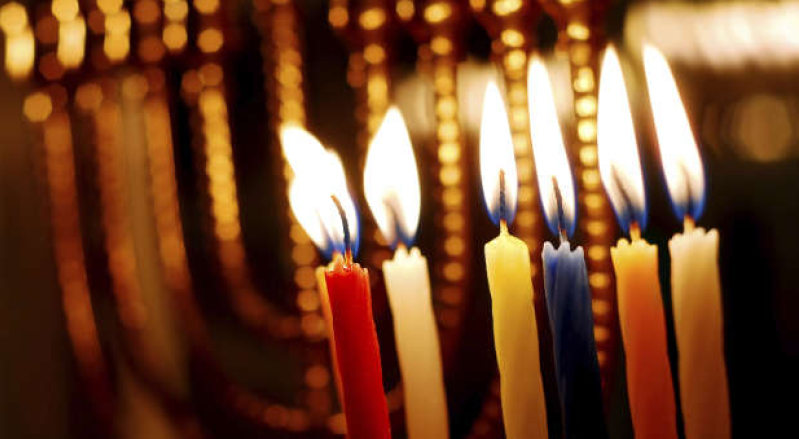
Tuesday, December 12 marks the first day of Hanukkah, also known as the Feast of Dedication" or the "Festival of Lights." The eight-day Jewish holiday, which ends in the evening of Wednesday, December 20, celebrates the rededication of Jerusalem's holy temple in 164 B.C. after it was defiled by a pagan ruler.
While Hanukkah is a traditional Jewish holiday, it's important for Christians to understand its significance, as it prepared the way for the birth and ministry of Jesus and reminds us of God's faithfulness and power.
History of Hanukkah
Hanukkah, which means "dedication" in Hebrew, tells the story of the Maccabees, from the priestly line of Aaron. In 167 B.C. the group rebelled against the Syrian king Antiochus IV, who desecrated the temple in Jerusalem with an altar to the pagan god Zeus, and tried forcibly to Hellenize the Jews.
After years of fighting, the Jewish zealots, led by Judah the Maccabee, miraculously experienced victory over the mighty Greek forces, defeating the pagan king. The old altar was demolished and a new one built, and the temple was rededicated. According to the story, only one vessel of sanctified oil was found, good for one day of fueling candles, yet it somehow burned for eight days. The miraculous eight days of burning is commemorated by the Menorah, or eight-branched candelabrum often associated with Hanukkah.
This rededication of the Temple to the God of Israel is celebrated during Hanukkah, officially established by King Hezekiah as seen in 2 Chronicles 29:17. The holiday is briefly mentioned in the Gospel: "And it was at Jerusalem the feast of the dedication and it was winter" (John 10:22).
Hanukkah Traditions
The holiday is celebrated with traditional foods - most of them fried in oil to symbolize and commemorate the miracle of the oil in the Temple - the lighting of the menorah, games and gifts.
The Menorah lighting is one of the most familiar traditions associated with Hanukkah. The menorah holds nine flames, one of which is the shamash ("attendant"), which is used to kindle the other eight lights. During the holiday, the first candle of the eight-branched lamp is lit on the first day; two candles lit on the second day, and so on until the eighth day when all the candles would be lit.
Before the menorah is lit, special blessings are often sung, and traditional songs are sung afterward.
It is also customary to play with a "dreidel", a four-sided spinning top bearing the Hebrew letters, nun, gimmel, hei and shin, an acronym for nes gadol hayah sham, "a great miracle happened there".
Hanukkah is also a time of feasting; traditional foods include otato pancakes (known as latkes) and jam-filled donuts (sufganiyot) are particularly popular in many Jewish households. Other Hanukkah customs include giving children chocolate coins wrapped in silver or gold foil, known as "Hanukkah gelt," or "Hanukkah money."
Hanukkah and the Christian faith
Hanukkah, which took place during the 400-year period between the writing of the last book of Hebrew Scriptures and the first book of the New Testament, prepared the way for the birth and ministry of Jesus: had the evil king Antiochus succeeded in eliminating the Jews, there would have been no Jewish woman named Mary to become the mother of Jesus Christ. Without Hanukkah, the celebration of Christ's birth - Christmas - would not be possible.
Hanukkah reminds us of God's faithfulness and power - even in the most impossible of situations.
Writes Susan Michael, U.S. Director of the International Christian Embassy Jerusalem: "Without Hanukkah, the celebration of Christ's birth could very well have not been possible. So as you wish friends and family Merry Christmas this year, you might also like to wish them Happy Hanukkah!"






